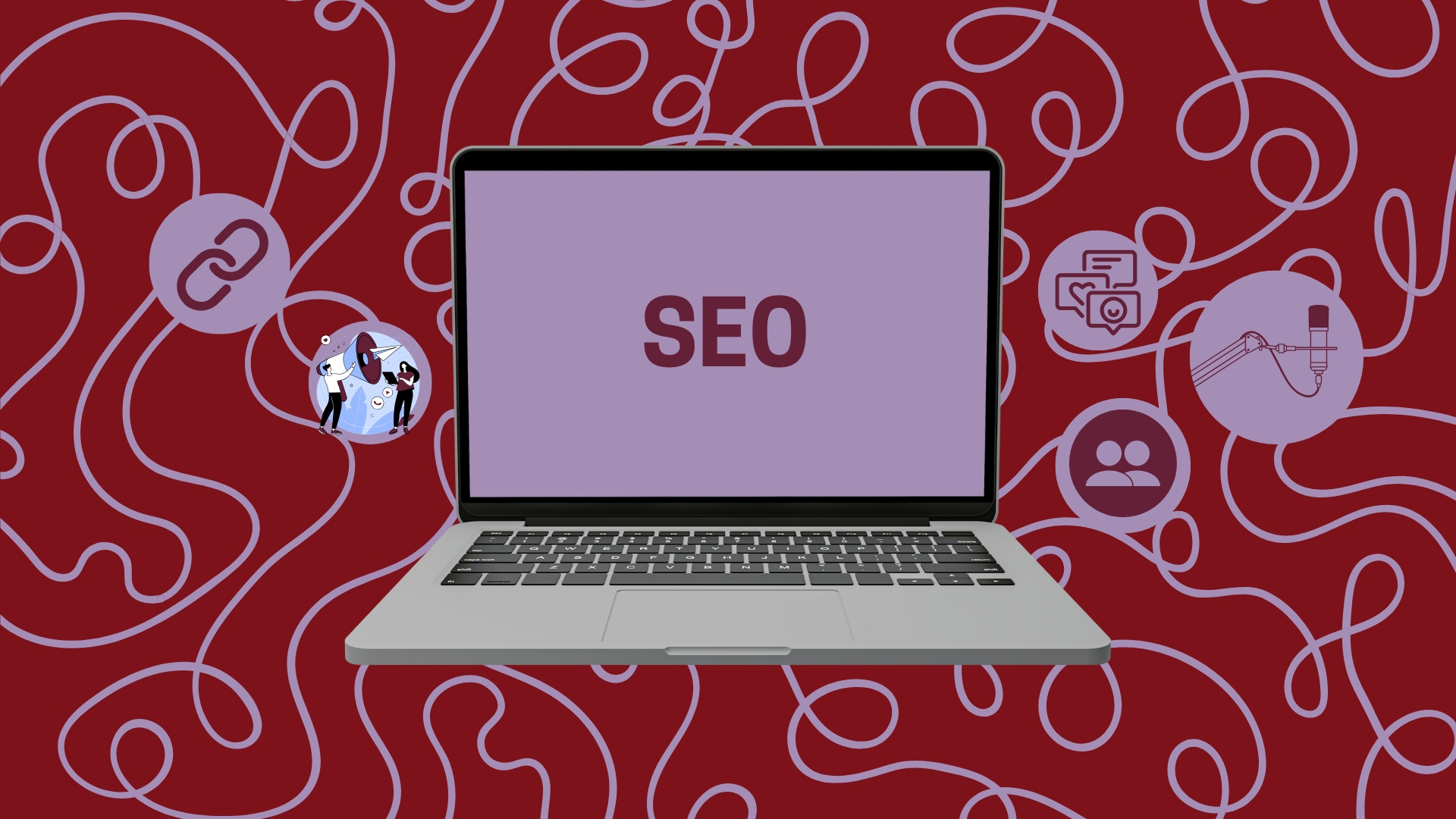The difference between on-page and off-page SEO is that on-page SEO looks at tackling all the areas on a site that you can control such as content, title tags and meta descriptions, header tags, image optimisation, keyword optimisation and more. Meanwhile, off-page SEO refers to tactics used to improve SEO performance outside the confines of the site such as backlinks, social media, guest blogging and influencer outreach.
In this blog post we will discuss:
- On-page SEO
- Off-page SEO
On-page SEO
On-page SEO is an important part of any SEO strategy as it informs how users interact with your website. The goal of on-page SEO is to improve user experience by making your website as effective as possible.
Content + Header Tags
Improving website content is one of the easiest ways to improve performance. Content that is clear, informative and structured informs search engines that it is a reliable source of information for users. Header tags are a great way to structure content that makes it easier for the reader to digest, while also indicating to search engines what your content is about. SEO best practices encourage the use of header tags, bullet points, internal links and images when creating content. Creating well-crafted content is one of the most important factors in improving search engine rankings.
Title Tags + Meta Descriptions
Title tags and meta descriptions are the first impression you make on a users when they come across your site, as they are shown on the search engine results page (SERP) in response to user queries. It is therefore important to make sure your title tag includes keywords that are relevant to the queries you want to rank for; while your meta descriptions should be written engagingly to entice new users to your site.
Image Optimisation
When following SEO best practices all images should be optimised to improve SEO performance. Images can be optimised in a number of different ways including;
- Faster page loading times: Making sure image file sizes are correct can impact page loading times, a faster loading website is an improved site.
- Alternative text: Alt text provides a text-based description of an image. This is user-friendly as it is helpful to visually impaired users and can also be read by search engines to determine image relevance.
- Image relevance: Making sure you choose images that are highly relevant to your topic is important so that search engines understand the context
Keyword Optimisation
This is the process of incorporating keywords into content to boost relevance for certain search queries. This is one of the fundamental steps of on-page SEO. Make sure to avoid keyword stuffing, inserting your keyword into the content too many times, as this can negatively affect SEO performance.
Off-page SEO
Off-page SEO is more difficult than on-page SEO as it involves actions taken outside of the site. It is just as important as on-page SEO, as you can have the best content and site architecture in the world but if Google doesn’t view your site as authoritative or trustworthy your SERP rankings will hit a ceiling.
Backlinks
Backlinks are links from other websites that link to your site. When reputable, authoritative sites link to your site, such as BBC, this tells Google that your site is a legitimate and trustworthy site. Therefore, gaining high-quality backlinks is crucial for improving SEO performance. Be aware of toxic backlinks, which can negatively impact SEO performance.
Social Media
Having a social media presence can also positively impact off-page SEO performance. Social media can help build brand awareness and drive traffic to your site while also resulting in backlinks from other reputable social media channels.
Guest Blogging
Guest blogging can also be a helpful off-page SEO strategy to improve performance. Guest blogging is when you appear on and write an article on someone else’s blog in your area of expertise. This can result in backlinks and also open you up to a wider audience.
Influencer Outreach
Influencer outreach can help improve SEO performance as influencers can generate interest in your product/ website which increases brand awareness and produces more backlinks. Influencers can also create high-quality content that can be used on your website and social media channels to attract a larger audience.






